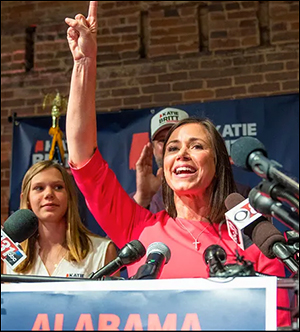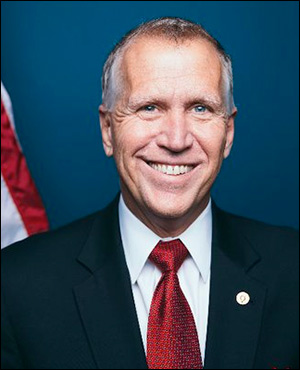By Jim Ellis — Thursday, July 13, 2023
Senate
Michigan: Actor Announces for Senate — As expected, actor Frank Eugene “Hill” Harper (D), one of the stars of the “CSI: NY” and “The Good Doctor” programs, announced that he will compete in the open Michigan US Senate primary. He becomes the fourth major candidate, and third African American, in the Democratic primary. He joins US Rep. Elissa Slotkin (D-Lansing), Michigan State Board of Education president Pamela Pugh, and former state Rep. Leslie Love.The crowded field likely plays well for the perceived leader, Rep. Slotkin. This primary will take a long while to unfold, however. The Michigan primary won’t occur until Aug. 6, 2024, and its competitiveness could tamp down the Democrats’ advantage in the general election. Though the party primary may well be more eventful considering Harper’s entry, Rep. Slotkin must still be rated as the favorite for the party nomination and to win the seat in the November election. Sen. Debbie Stabenow (D) is retiring after serving what will be four full terms.
Nevada: Republicans Score Candidate Prospect — In another move that has been expected for several months, disabled Afghan War veteran and 2022 Senate candidate Sam Brown (R) announced he will return to again compete in a Nevada US Senate race. This time, he hopes to capture the Republican nomination and challenge first-term Democratic Sen. Jacky Rosen.
In ’22, Brown lost the party primary to former Attorney General Adam Laxalt, 56-34 percent, but raised an impressive $4 million-plus for his effort. Laxalt would then lose the general election to Sen. Catherine Cortez Masto (D) by fewer than 18,000 votes from more than 1 million ballots cast. Now, it appears that Brown has the inside track for the party nomination and would be an interesting candidate in the general election. A strong Brown candidacy could elevate Nevada into top-tier campaign status.
Texas: State Senator Enters Battle to Challenge Sen. Cruz — San Antonio area state Sen. Roland Gutierrez (D) announced Tuesday that he will enter the Texas Democratic primary, which will likely ignite a difficult nomination battle against US Rep. Colin Allred (D-Dallas) who announced his candidacy in early May. The eventual party nominee will then challenge two-term Sen. Ted Cruz (R) in the general election.
Sen. Gutierrez, who represents a legislative domain similar to that of US Rep. Tony Gonzales’ (R-San Antonio) congressional district in that it begins in the metro area and then stretches through most of west Texas toward El Paso, is a strong gun control advocate. Prior to defeating a Republican incumbent to win a Senate seat in 2020, Gutierrez had served six terms in the state House of Representatives.
Rep. Allred is reporting raising more than $6.2 million for his Senate effort after announcing his candidacy, but now will have to spend heavily just to win the party nomination in March. It is likely the beneficiary of what will be a hotly contested race between Allred and Gutierrez is Sen. Cruz. The Texas primary is scheduled for Super Tuesday, March 5, 2024.
House
AK-AL: Nick Begich (R) Considering Another House Bid — Businessman Nick Begich III, whose grandfather was a Democratic congressman and uncle, Mark Begich, served as a Democratic US senator before losing to current Republican Sen. Dan Sullivan, is again reportedly contemplating a run for the state’s at-large US House seat. He participated in the 2022 special and regular elections as a Republican, qualifying for the secondary election both times, but failing in Ranked Choice Voting.
Many observers believed he would be the strongest candidate against Rep. Mary Peltola (D-Bethel) who won both of those elections by outdueling Sarah Palin in the Ranked Choice rounds. Should Begich run in 2024, it is probable he would have a strong chance to end in the final round with Rep. Peltola. The at-large Alaska seat is now the most Republican congressional district in the country to send a Democrat to the US House.







